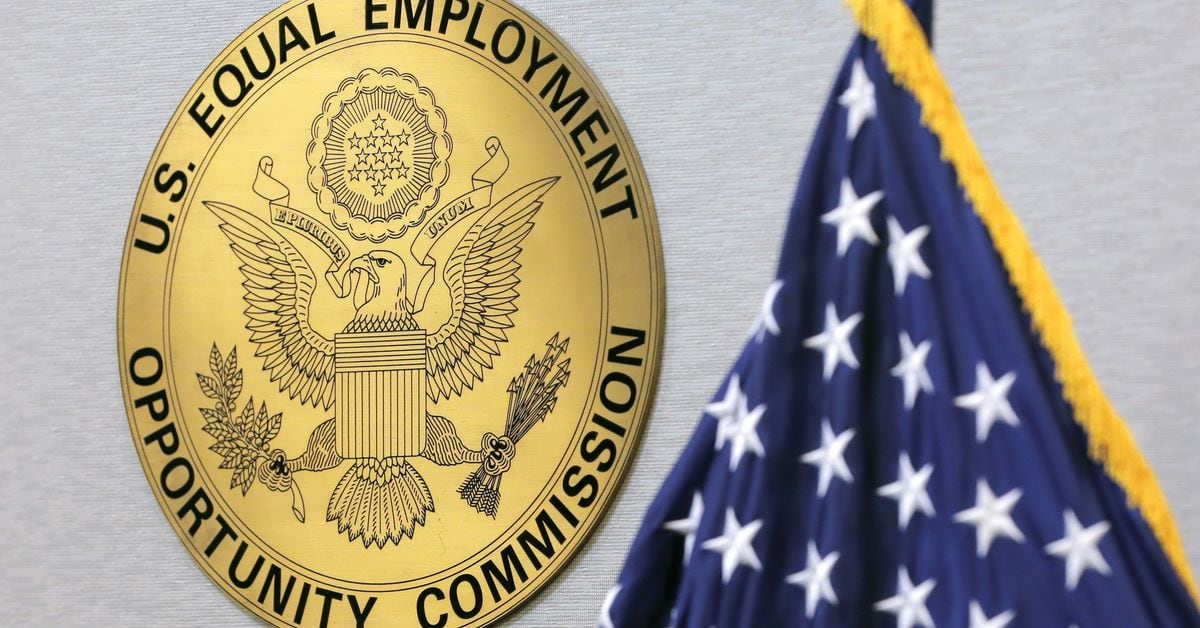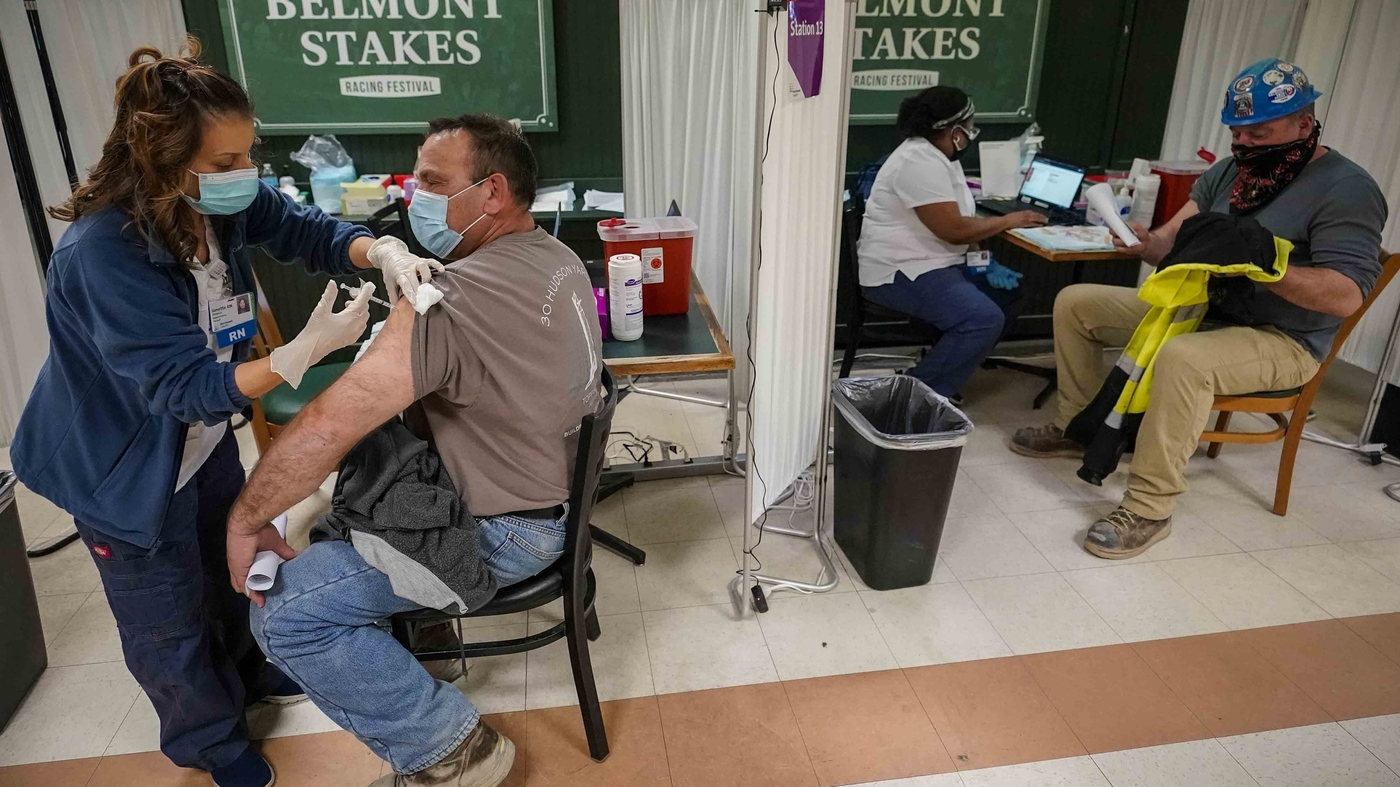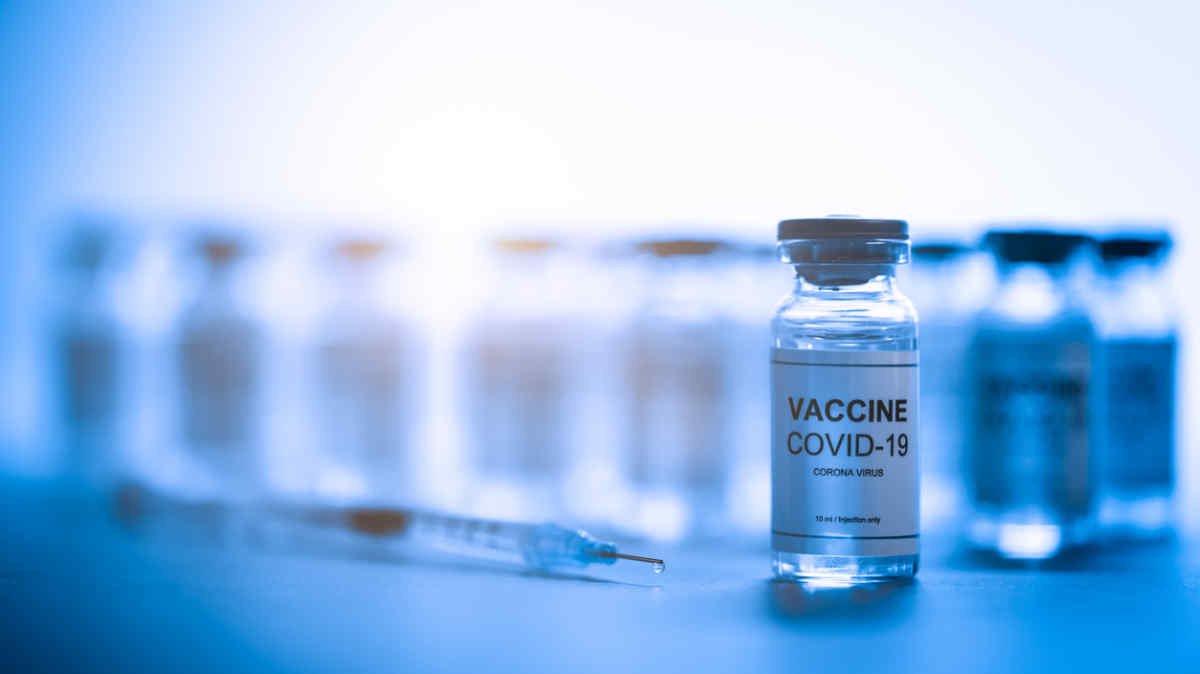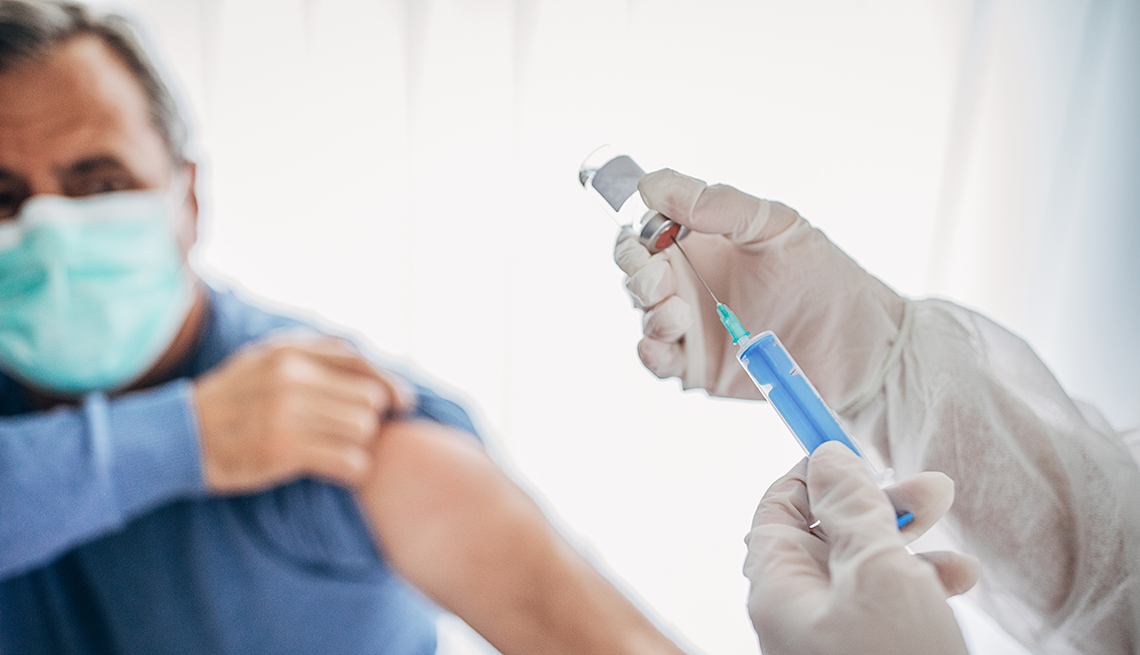- 11,299
- 1,734
- 113

Hospital suspends 178 health care workers for failing to get COVID vaccine
They have two weeks to become fully vaccinated or they face termination.
 arstechnica.com
arstechnica.com
Follow along with the video below to see how to install our site as a web app on your home screen.
Note: This feature may not be available in some browsers.

 arstechnica.com
arstechnica.com
Kind of what I was thinking. Mandating an experimental and emergency use vaccine as a condition of employment seems to be pushing it.We all knew this was coming, but honestly I didn't think it would happen until the vaccines had received full FDA approval. I hope the lawsuit is successful.
What about the employer's rights? How's this different from mandating flu vaccines?but believes strongly in the principles of autonomy and self-determination, I really hope the lawsuit is successful.
The connotations of emergency use and experimental are really not so close to what is going on here - it's not like the vaccines aren't tested or aren't subject to rigorous study, they are just tested and produced in parallel & the study periods are a bit shorter (but at this point, they've been out for so long that the difference is meaningless)...Mandating an experimental and emergency use vaccine
My employer (and most that I've had) have a policy where you either wear a mask while at work during flu season OR you get that year's flu vaccine. IOW: Opt in and you don't have wear a mask, opt out (for any reason, they don't care) and you must wear a mask. What's different is in this particular case there is no "opt out" provision. Basically opting out = you're fired.What about the employer's rights? How's this different from mandating flu vaccines?
My employer (and most that I've had) have a policy where you either wear a mask while at work during flu season OR you get that year's flu vaccine. IOW: Opt in and you don't have wear a mask, opt out (for any reason, they don't care) and you must wear a mask. What's different is in this particular case there is no "opt out" provision. Basically opting out = you're fired.
The connotations of experimental and emergency use are absolutely a factor here. These vaccines have not completed a full FDA approval process, nor do we know if there will be any long term or late acting side effects.What about the employer's rights? How's this different from mandating flu vaccines?
The connotations of emergency use and experimental are really not so close to what is going on here - it's not like the vaccines aren't tested or aren't subject to rigorous study, they are just tested and produced in parallel & the study periods are a bit shorter (but at this point, they've been out for so long that the difference is meaningless)...
"Litany of compelling rationale for an employer to try and protect the employee"Seems like a reasonable policy. I must say, though, given the risks of COVID to the unvaccinated - particularly health care workers regularly at risk of exposure - to be vaccinated. In this case, and indeed, much like the flu, there is a litany of compelling rationale for an employer to try to protect the employee: ensuring available staffing, protecting the employer from liability, protecting patients, etc.
Well, I never agreed with mandating flu vaccines, either. And what rights of the employer are we even talking about? The right to to attempt to avoid the staffing challenges that could potentially arise as a result of some employees potentially becoming ill? If we are being honest, from the perspective of the employer, that is mainly all that this comes down to. The idea that that outweighs the autonomy and self determination of every one of their employees is pretty remarkable, IMO, and we should really consider the logical extensions of that.What about the employer's rights? How's this different from mandating flu vaccines?
The vaccines have not completed the FDA approval process - full stop. Emergency use authorization is not the same thing. And if completing the full FDA approval process isn't really that important, then why do we require it at all for any drug that shows the promise of safety and efficacy in early trials? Why not allow individuals (or employers, in the case of your position) to assess the safety of drugs on their own using data from independent, third party testing agencies? I know that is a significant digression from the topic at hand, but I think it's a fair question. Is full FDA approval important, or not?The connotations of emergency use and experimental are really not so close to what is going on here - it's not like the vaccines aren't tested or aren't subject to rigorous study, they are just tested and produced in parallel & the study periods are a bit shorter (but at this point, they've been out for so long that the difference is meaningless)...
Again, the population most likely to be seriously affected by COVID is discrete and well defined (the elderly and those with pre-existing cardiorespiratory conditions) and a large majority of that population has already been vaccinated and is, essentially, no longer at high risk. If members of that or any other population choose to accept the risks of not being vaccinated, why is that not an OK choice?Seems like a reasonable policy. I must say, though, given the risks of COVID to the unvaccinated - particularly health care workers regularly at risk of exposure - to be vaccinated. In this case, and indeed, much like the flu, there is a litany of compelling rationale for an employer to try to protect the employee: ensuring available staffing, protecting the employer from liability, protecting patients, etc.
Great idea! However, the reality is that almost all the problems that we have with access to care and skyrocketing healthcare costs are either directly or at least partially a result of the type of top-down mandates that you seem to endorse which makes this type of innovation and choice impossible. One of the best memes ever is that of the government making it impossible to fix things and then people thinking the fact that things never get fixed is somehow evidence that more government intervention is necessary.If you want to be a purist libertarian about public health, well go start you own hospital where vaccinations are not required if you don't want to grant free enterprise their right to determine safety and continuity of operation interventions expected of staff who voluntarily choose to work for them.
No. Only half the population so far is vaccinated yet somehow new cases AND case severity AND fatality rates all continue to fall steadily. The risk of contracting COVID gets lower every day, even for those who aren't vaccinated. There are very few people who can't be vaccinated or in whom the vaccine is unlikely to be effective due to reduced immune response and we already handle those folks with special protections against respiratory disease transmission.ICarlos while you bang your "just focus on vaccinating the vulnerable" drum, you know well that some of those most likely to have more severe courses who get vaccinated may not seroconvert and these folks are our patients. This includes patients who cannot be vaccinated. Further, those without primary risk factors for a more severe course does not exclude severe course, it just drives risk. Those people are also our patients.




... market realities are painful to some, particularly in distorted markets? Sure. But there are tons of employers that these very few individuals can go work for if they don't like a new work requirement that 24,769 out of the 24,947 staff have found a way to be in compliance with... a policy the employer has legally asked of their employees, even if you and I disagree with it (though for different reasons). Free choice goes both ways!Great idea! However, the reality is that
The people who cannot get vaccinated and or who won't seroconvert, as well as those who are higher risk, are more likely to be our patients. We don't know who these 5+% non-seroconverters for mRNA vaccines are (12% against Delta variant) and higher rates for JJ. So if an employer decides it to be an ethical imperative to have fully vaccinated staff to protect these vulnerable individuals, I think that's both ethical and legal.No. Only half the population so far is vaccinated yet somehow new cases AND case severity AND fatality rates all continue to fall steadily. The risk of contracting COVID gets lower every day, even for those who aren't vaccinated. There are very few people who can't be vaccinated or in whom the vaccine is unlikely to be effective due to reduced immune response and we already handle those folks with special protections against respiratory disease transmission.
The vaccines have gone through Phase 3 trials & have been used in hundreds of millions of people for months now without adverse consequences - how much more do you want? The data - at this point - is months and months and months, effectively enough for a full approval.The connotations of experimental and emergency use are absolutely a factor here. These vaccines have not completed a full FDA approval process, nor do we know if there will be any long term or late acting side effects.
Are you willing to let your employer mandate that you participate in an experimental or emergency use procedure in the name of the employer's rights? Think carefully before answering that, because you may find yourself being shoved down the proverbial slippery slope.
This would be no different than requiring the flu vaccine except that the COVID vaccines have not received final FDA approval yet. Then again, I've never ran across an employer who requires a flu vaccination as a condition of employment.
"Litany of compelling rationale for an employer to try and protect the employee"
And the road to Hell is paved in good intentions.
Where do you draw the line? May an employer require you be a non-smoking, non-drinking, 4 day a week exercising, body fat percentage of less than 2%, genetically screened for minimal risks to cancer? All of these things carry risks to employer staffing availability, and all have been viewed as "the greatest threat" to a person's health at one time or another.
In theory, sure. There are lots of negative externalities, however, and in the absence of willingness to use the carrot (which would be better, but still coercive in a way), a vaccine mandate is not so crazy, particulalry for an employer when an employee has the ability to quit. It's not as if there is a disparate impact on a class, a preponderance of evidence that there is risk from vaccination*.Would it really not be better to just let everyone make their own decisions on this? I think it would. I think it would not only be more just, but also simpler and easier to allow everyone to make their own decisions about their own healthcare, just like we've always been taught we should.
Oh, there absolutely have been adverse consequences from the Covid vaccine. There's a reason the CDC maintains this webpage: https://www.cdc.gov/coronavirus/2019-ncov/vaccines/safety/adverse-events.htmlThe vaccines have gone through Phase 3 trials & have been used in hundreds of millions of people for months now without adverse consequences - how much more do you want? The data - at this point - is months and months and months, effectively enough for a full approval.
The employer & the employee both have rights - the vast majority of employees are at will & the job market has never been more employee friendly.
Genetic screening is not permitted by law to be used against you in employment. You can absolutely make non-smoking a hiring requirement according to federal law (though not all state laws). Not sure about alcohol or exercising, but exercise/fitness can be a bona fide occupational qualification, and employers are totally allowed to have higher health insurance premiums for smokers. Employers can also require that you not smoke or drink on the job (or be intoxicated at work). Where do I draw the line? Since there are labor market frictions & inequities, I would say that anything out of your control, like genetics, should probably be protected, but other than that, it is more difficult to make a good case.
In theory, sure. There are lots of negative externalities, however, and in the absence of willingness to use the carrot (which would be better, but still coercive in a way), a vaccine mandate is not so crazy, particulalry for an employer when an employee has the ability to quit. It's not as if there is a disparate impact on a class, a preponderance of evidence that there is risk from vaccination*.
*We can talk precautionary principle elsewhere - I can understand that line of reasoning, but if we follow it to the letter, then we don't have any innovation.
Not of any significance to the broad rollout. Firstly, VAERS accepts anybody's submission - I can put one in right now and make any claim I like. Second, of the adverse events that have happened, these are almost all speculation at this point or of minimal risk on a population level.Oh, there absolutely have been adverse consequences from the Covid vaccine. There's a reason the CDC maintains this webpage: https://www.cdc.gov/coronavirus/2019-ncov/vaccines/safety/adverse-events.html
Just because you choose to ignore those adverse consequences to bolster your argument does not mean other people have to ignore them...unless you feel your employer has the right to determine what risks you should take with your own body.
If the vaccine has gone thru everything required to give it its certification, then why hasn't the FDA approved it yet? This would be a slightly different argument if it was a fully approved vaccine, but its not yet. Some people have an issue with being forced to participate in an experimental vaccine roll out.
As far as your responses to my examples of things that are a risk to employer staffing levels, they were just examples and not an all inclusive list. The point was that where do you draw the line at an employer making decisions about an employee's lifestyle?
